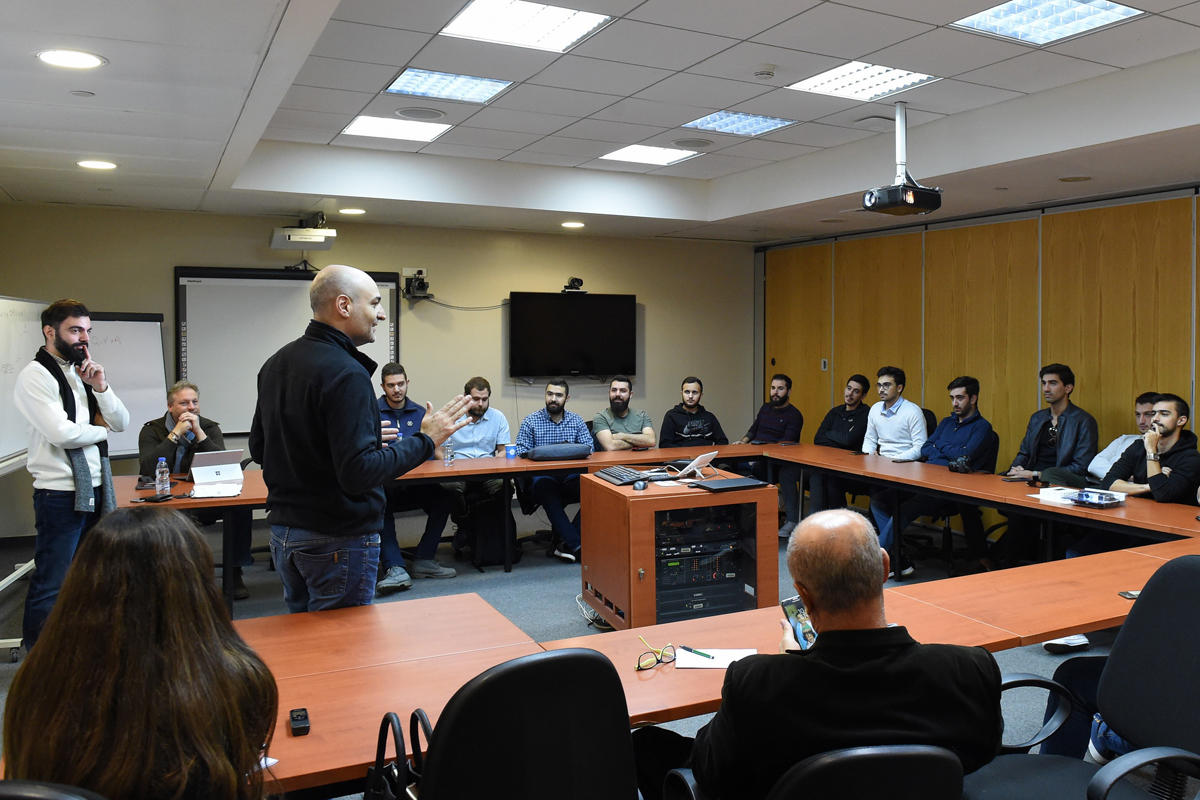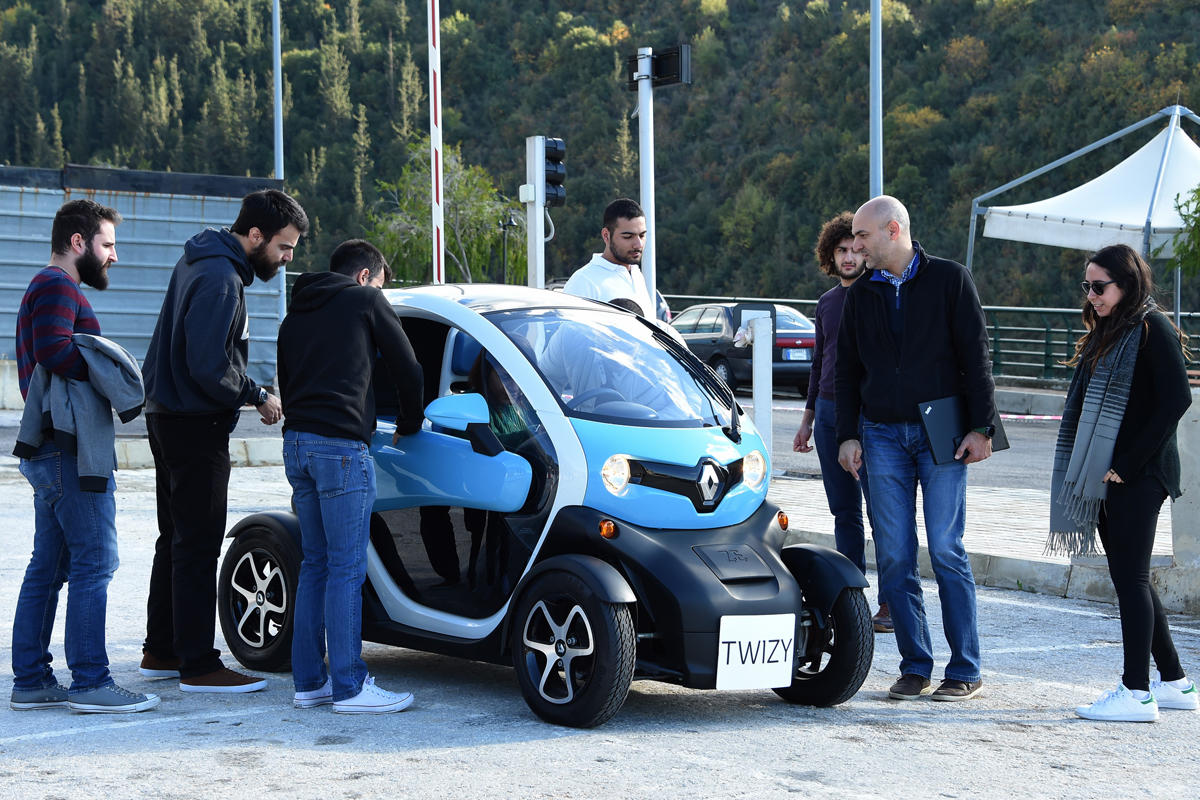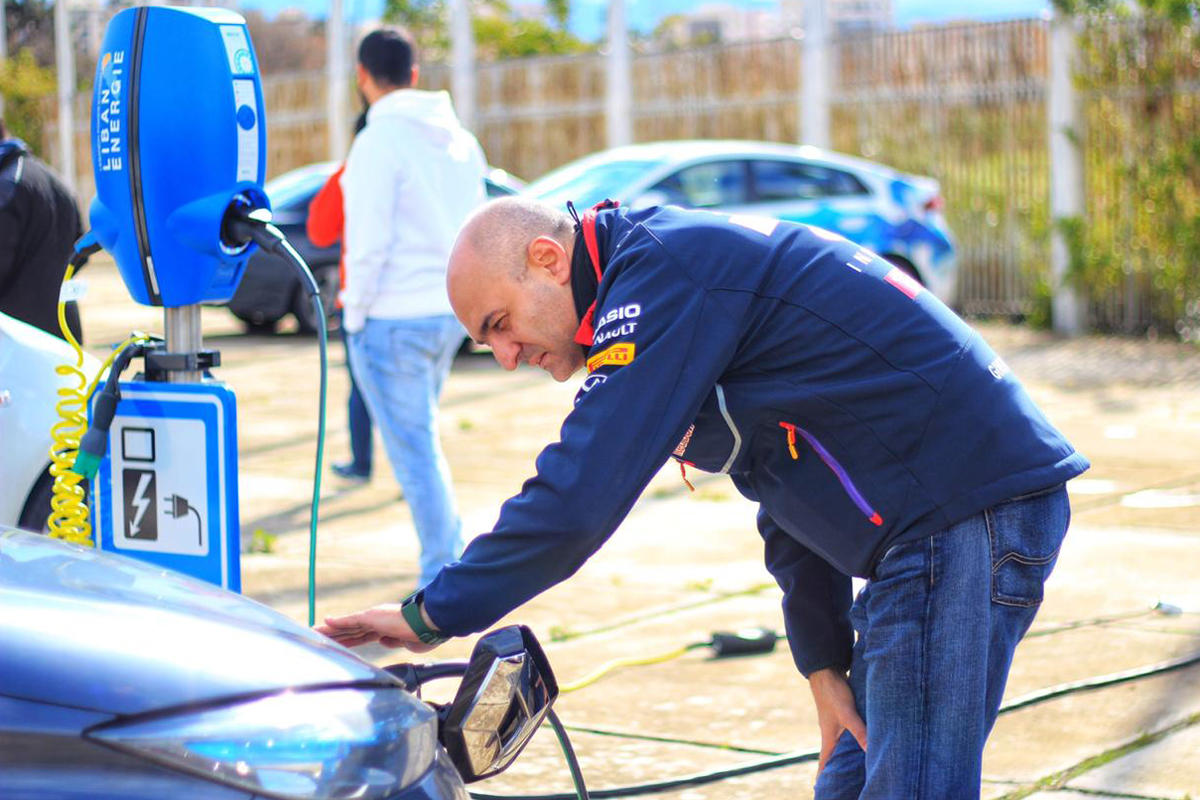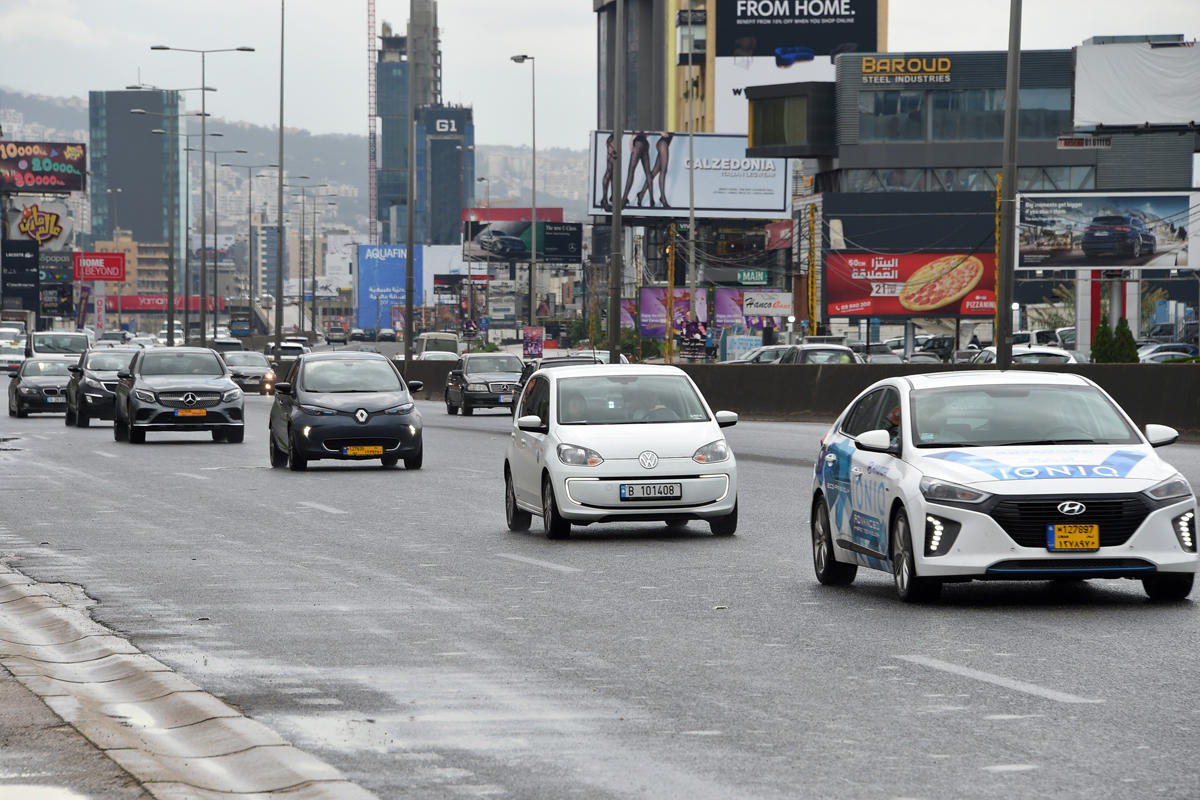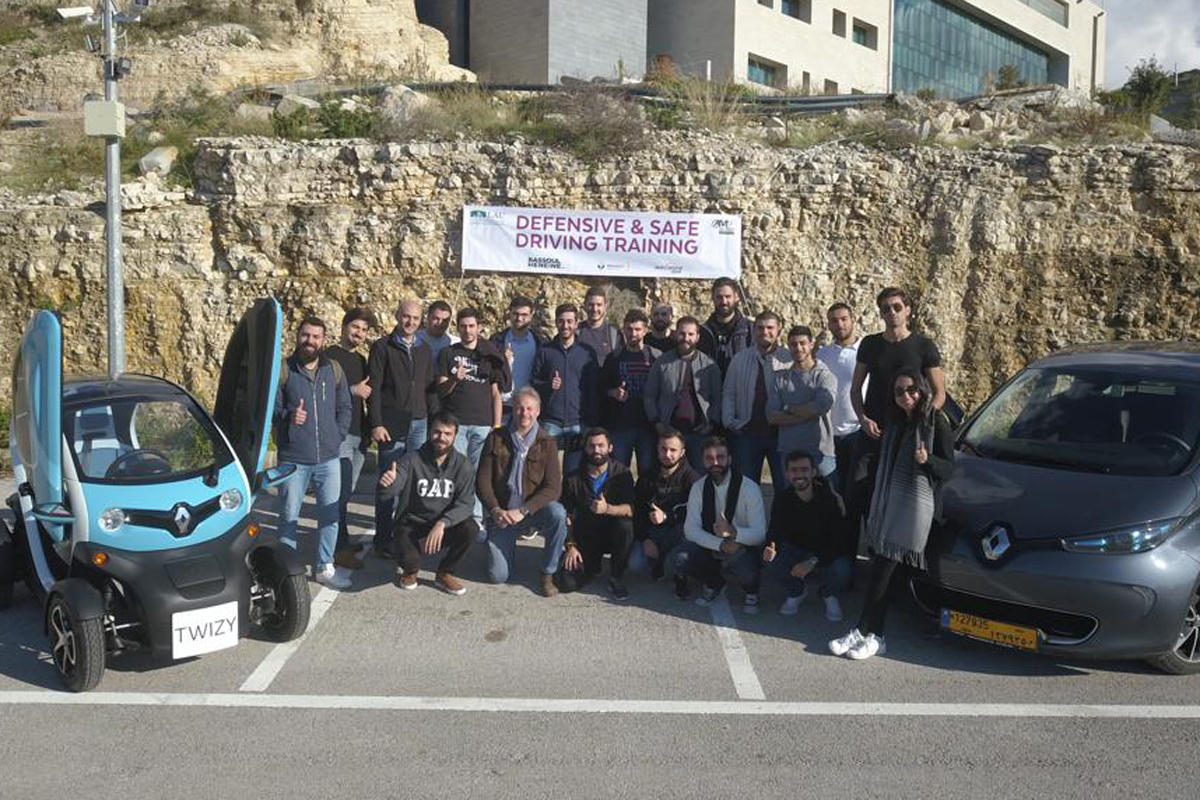Demystifying Electric Vehicles
The School of Engineering takes the wheel to promote road safety education and green energy in Lebanon.
In order to cut its carbon emissions in line with its 2030 commitment to the United Nations Framework Convention on Climate Change, Lebanon needs to move away from vehicles that burn fossil fuels and embrace cleaner energy.
LAU’s School of Engineering (SOE) has been ahead of the curve in that regard, driving research and partnerships with various organizations to tackle the problem head-on. In concert with the United Nations Development Programme (UNDP), the Ministry of Energy and Water, and the Ministry of Environment, the SOE is organizing the E-Mobility Summit, due to take place in Lebanon, at LAU, in March 2019.
The summit aims at tackling the profound transformation that mobility is undergoing and its implications on emerging economies such as Lebanon. It will also prepare for a comprehensive roadmap – adapted for the local context – that outlines a holistic approach in the development of a mitigation portfolio for the different means of transport (mass transit, electrified mobility, shared cars, non-motorized transport). Furthermore, the roadmap will account for the need to enable measures with the appropriate policy framework that ensures a successful outcome.
“LAU has been very active through research and is committed to educating the public and spreading awareness on this issue,” said Assistant Professor Charbel Mansour, who has been conducting research on transportation and mobility with Assistant Professor Marc Haddad since 2011.
Ahead of the summit, the SOE’s Industrial and Mechanical Engineering Department organized the first road tests of hybrid and electric vehicles in Lebanon to assess their performance under local driving and weather conditions, in partnership with the UNDP, the Ministry of Energy and Water, the Ministry of Environment and the American Society of Mechanical Engineers (ASME) – LAU student section. The launch of the road test was also preceded by an event titled Mobility Next: Lebanon On the Pulse of E-Mobility, held at LAU Beirut campus on October 31.
SOE students, under the supervision of Drs. Mansour and Haddad, tested six vehicles – the Mercedes GLC, Volvo XC90, Renault Zoe, Volkswagen e-Up, Toyota Prius and Hyundai Ioniq – on different routes over eight days in December 2018 and January 2019.
“We collected data on vehicle performance, which will be assessed to determine energy consumption, emissions and mobility cost,” said Dr. Mansour, who, together with the students, will be providing technical advice during the summit.
“We will also derive answers to questions asked by the general public in order to demystify electric vehicles,” he added.
To educate the students on safe driving before they hit the road, a training session was organized on LAU’s Byblos campus in collaboration with Adel Metni Foundation, a non-profit organization that promotes innovative and efficient road-safety solutions in Lebanon and the MENA region. The purpose of the session was “to introduce the students to the concept of defensive driving through innovative education to help them become proactive drivers,” said road safety expert and president of the foundation, Mr. Georges A. Metni.
Eighteen LAU mechanical engineering students who participated as drivers or co-drivers in the road test received advice on ways to reduce human error behind the wheel, including eliminating distractions, gripping the steering wheel properly, and wearing the seat belt.
“Defensive driving means driving both smart and safe,” said Metni, asserting that road safety is a public health issue that requires urgent attention, as accidents claim 3,500 lives worldwide every day.
The theoretical session was followed by a technical one, where students practiced emergency braking and other exercises on the 100 percent electric cars Renault Zoe and Renault Twizy, which are environmentally friendly, low-cost and safe. “Training the students prior to the road test will help them anticipate the risks, increase their control, and use the right skills to prevent crashing,” commented Metni.
Fourth-year mechanical engineering student Sara Mezher agreed. “The training allowed us to test the vehicle’s anti-lock braking system (ABS) and learn about the proper response in an emergency situation.”
Although electric and hybrid vehicles are already available on the Lebanese market and are exempt from custom taxes, the Lebanese still lack basic knowledge of them.
“It is our responsibility to educate the public during this transition phase and prove to them that these technologies are sustainable on Lebanese roads,” said LAU alumnus Hussein Basma, who is pursuing a PhD in Automotive Engineering at MINES ParisTech, France.
Through collaborations and awareness events, LAU remains a pioneer in promoting road safety and green transportation in Lebanon. “LAU is known for its innovation and leadership,” said Metni, “and we are proud to collaborate with it to address the youth and develop responsible individuals behind the wheel.”
